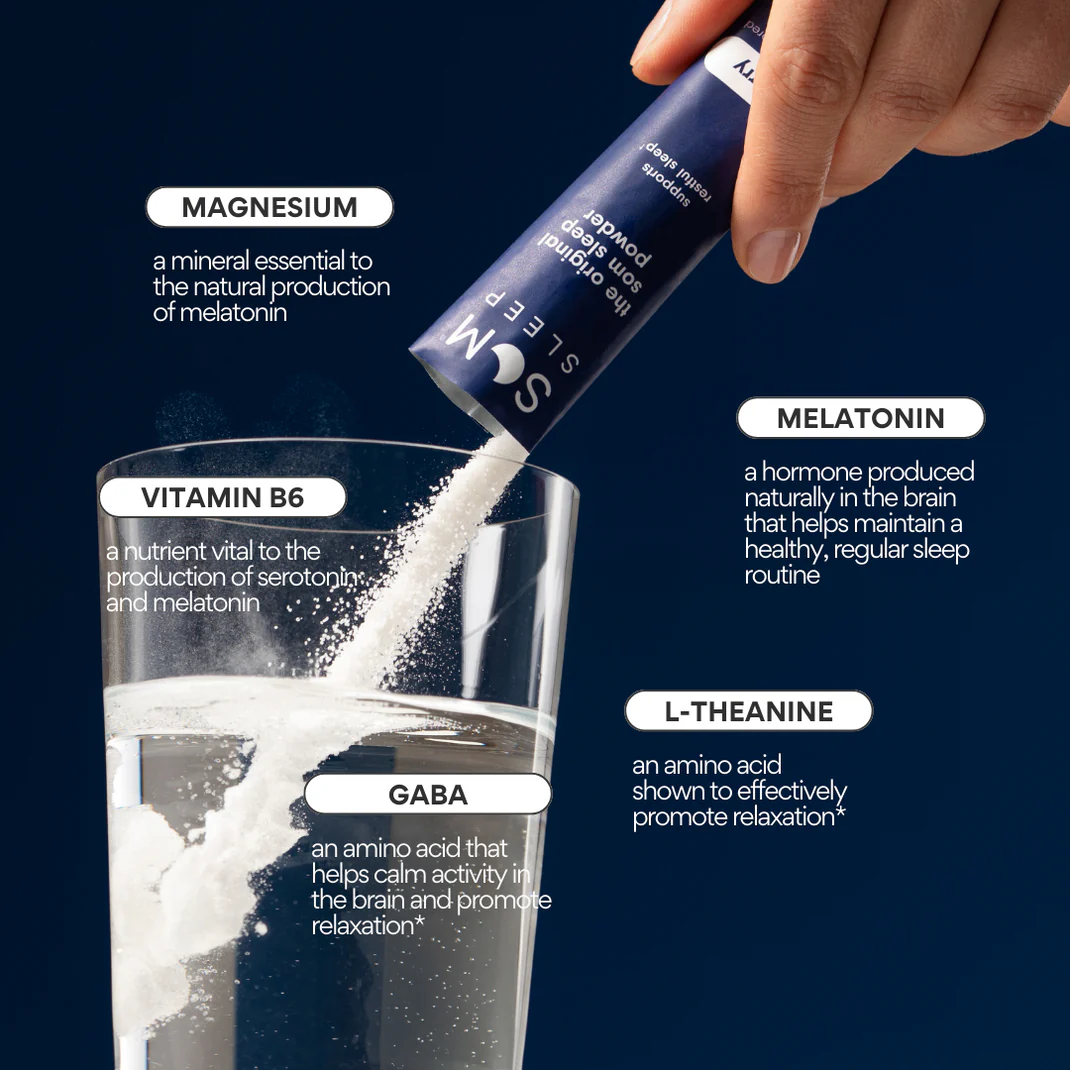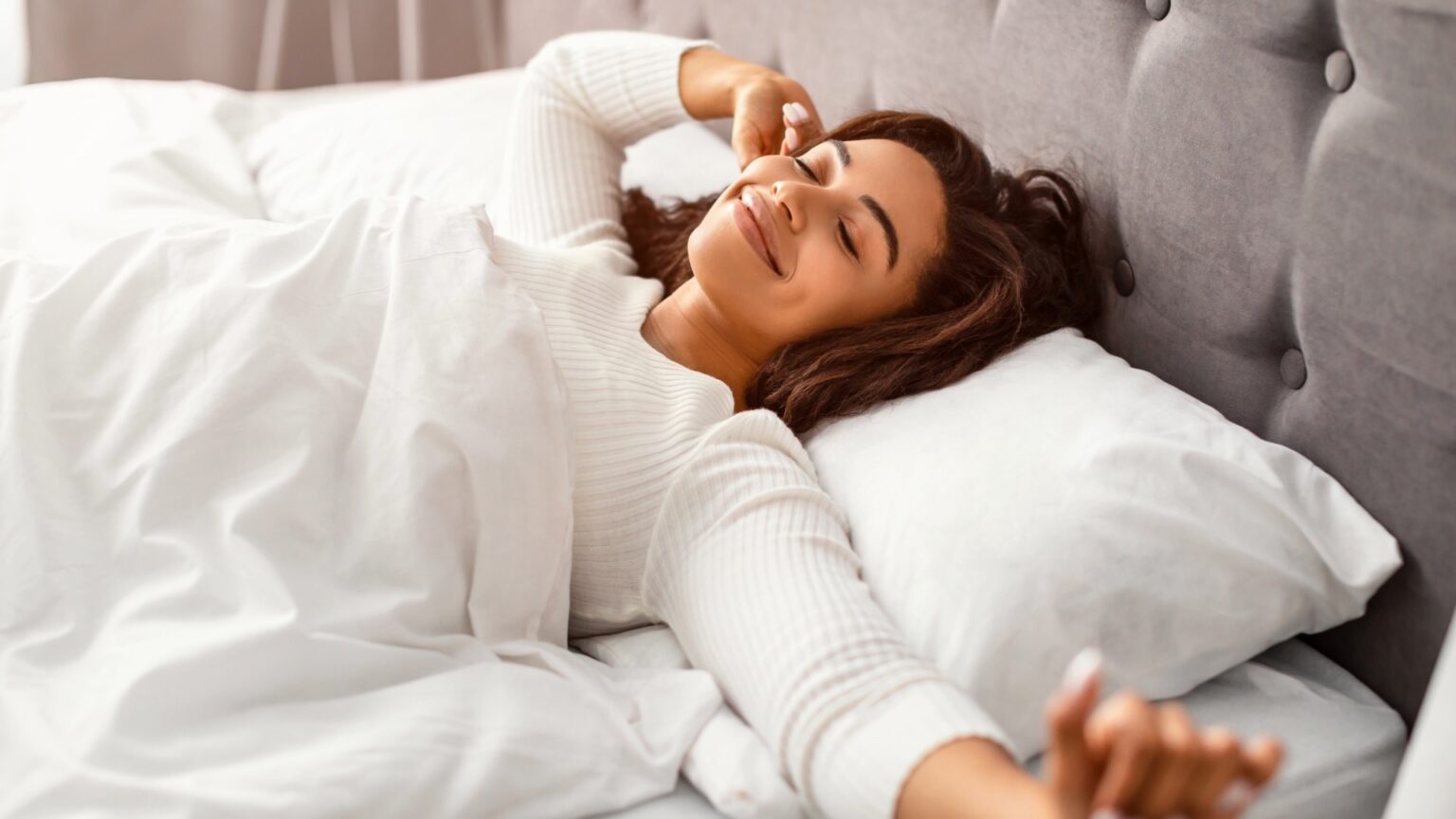Experiencing sleep troubles during menopause can be frustrating and exhausting. Adopting advanced sleep hygiene techniques can significantly improve your ability to rest well during this transition. Simple changes in your routine, like avoiding heavy meals before bed and creating a relaxing bedtime ritual, can make a huge difference in your sleep quality.
Hormone fluctuations during menopause often lead to night sweats and insomnia, making restful sleep seem elusive. Using natural sleep aids and practicing relaxation techniques, such as meditation or deep breathing, can help calm your mind and body. Adapting these methods into your lifestyle can help manage hormone-induced sleep disruptions effectively.
Establishing a consistent sleep schedule and minimizing screen time before bed are crucial steps in achieving better rest. By addressing night sweats with breathable sleepwear and keeping a cool room temperature, you can enhance your chances of sleeping comfortably through the night. These advanced techniques can guide you to a more restful night’s sleep despite the challenges of menopause.
Key Takeaways
- Adopt advanced sleep hygiene methods for better rest during menopause.
- Manage hormone-induced sleep disruptions with relaxation techniques.
- Consistent routines and environmental adjustments support restful sleep.
Understanding Menopause and Sleep
During menopause, many women experience sleep disturbances that can affect their quality of life. Hormonal fluctuations are the main reason, leading to insomnia and night sweats that disrupt sleep patterns.
The Impact of Menopause on Sleep
Menopause often triggers changes in your sleep cycle. Many women find that they have trouble falling asleep or staying asleep through the night. Symptoms like hot flashes and night sweats are common and can wake you up multiple times.
Sleep interruptions can lead to fatigue and irritability during the day. The reduced sleep quality can also impact your focus and mood. These changes don’t just happen at night; they can affect your daily activities and overall well-being.
Being aware of these impacts can help you take steps to improve your sleep. Simple adjustments in your environment and habits can make a significant difference. You might find it helpful to create a calming bedtime routine to counteract these menopause-related sleep disruptions.
Hormonal Changes and Insomnia
Hormonal changes are a major factor in menopause-related insomnia. As estrogen and progesterone levels fluctuate, they can disturb your body’s natural sleep-wake cycle. These hormones play a role in maintaining restful sleep and regulating body temperature, so changes can lead to difficulties.

Namastay in Bed
Namastay In Bed is a plant-based supplement that helps ease your brain into a normalized sleep cycle.
When estrogen levels drop, it can cause night sweats, making you uncomfortable and causing you to wake up frequently. This hormonal shift can also contribute to anxiety and mood swings, further affecting your sleep quality.
Consider methods to balance your hormones naturally. Exercise and a balanced diet can support hormonal health. Additionally, certain herbal supplements are often used to help ease these symptoms, but you should consult with your healthcare provider before starting any new regimen.
Developing a Sleep Hygiene Routine
Creating a sleep hygiene routine can make a big difference in getting better rest, especially during menopause. By setting up your environment and focusing on relaxing activities before bed, you can improve the quality of your sleep and reduce nighttime disturbances.
Setting the Stage for Restful Sleep
To prepare for sleep, your bedroom should be a sanctuary for relaxation. Keep the room cool, as this helps combat night sweats and creates a more comfortable environment. Using fans or air conditioning to maintain an ideal temperature can be helpful.
Lighting matters too. Dim the lights an hour before bed to signal to your body that it’s time to wind down. This supports the natural release of melatonin, which aids in sleep.
Pay attention to noise. Consider using a white noise machine or earplugs if you are in a noisy area. Keeping your bedroom free from clutter can also help ease your mind and make it easier to relax and focus on sleep.
Pre-Sleep Activities for Relaxation
Incorporate calming activities in the evening to help you unwind. Start with a warm bath or shower. The heat can relax your muscles and the cooling process afterward signals your body that it’s time for sleep.
Meditation or deep-breathing exercises are great tools for reducing anxiety and inducing sleepiness. Spend 5–10 minutes focusing on your breath or guided meditations to ease your mind from daily stressors.
Limit screen time before bed. The blue light from devices like phones and tablets can interfere with melatonin production. Instead, try reading a book or listening to soothing music. These activities can soothe your mind and help you create a new bedtime ritual, promoting a more restful night.
Hormone Balance and Sleep
Balancing hormones is essential for improving sleep during menopause. Diet and lifestyle play a critical role in maintaining hormonal stability, which directly impacts sleep quality.
Diet and Hormone Regulation
What you eat can have a big impact on your hormone levels and sleep quality. Foods rich in phytoestrogens, like flaxseeds and soy products, can help balance estrogen levels. Including omega-3 fatty acids found in fish like salmon may also support hormonal health.
Reducing sugar and caffeine can reduce hormone-induced sleep disruptions. These substances can lead to spikes in your blood sugar and disrupt your sleep cycle. Try incorporating more fruits, vegetables, and whole grains into your meals to support your hormonal health further.
A diet rich in magnesium, found in nuts, seeds, and leafy greens, can help improve sleep by promoting relaxation and decreasing stress-related changes in cortisol levels. Drinking herbal teas like chamomile or valerian can also facilitate relaxation and prepare your body for sleep.
Lifestyle Changes for Hormonal Stability
Adopting certain lifestyle changes can significantly affect your hormonal balance, aiding better sleep. Regular exercise is key. It can help reduce menopausal symptoms such as hot flashes and night sweats that often disrupt sleep. Aim for at least 30 minutes most days, but be sure to avoid vigorous activity close to bedtime.
Stress management techniques like yoga and meditation can promote hormonal balance. These methods offer relaxation that can ease symptoms like anxiety, which often affects sleep during menopause.
Maintaining a consistent sleep schedule by going to bed and waking up at the same time daily can also help regulate your body’s internal clock. Creating a calming pre-sleep routine, such as a warm bath or reading, can prepare your body for rest, stabilizing hormone levels and improving sleep quality.
Addressing Night Sweats and Sleep Disruptions
To improve sleep quality during menopause, focus on reducing night sweats and minimizing sleep disruptions. Effective cooling methods and appropriate bedding choices can make a significant difference.
Cooling Techniques for Night Sweats
Managing night sweats involves keeping your environment cool. Use fans or air conditioning to maintain a comfortable room temperature. Cooling pads or mattress toppers can help as they reduce heat under your body.
Staying hydrated is important, as it helps regulate body temperature. Sip cool water before bed. Lightweight blankets will allow airflow and prevent overheating. When a hot flash occurs, keep a damp washcloth nearby to cool down quickly.
Engage in relaxation techniques such as deep breathing, which can ease stress and help manage hot flashes more effectively.
Bedding and Clothing Solutions
Choosing the right bedding and clothing can make a big difference. Look for moisture-wicking sheets, which absorb sweat and keep you dry. Natural fibers like cotton or bamboo are breathable options.
Opt for layered bedding so you can easily adjust based on your temperature. Similarly, wear breathable, loose-fitting pajamas. Avoid heavy fabrics that trap heat.
Pillowcase material matters, too. Consider satin or silk, which can feel cooler to the touch. Investing in a specialized cooling pillow can further enhance comfort. These choices contribute to a cooler night’s sleep which is vital for managing night sweats during menopause.
Natural Sleep Aids and Menopause
During menopause, natural sleep aids can be a key part of improving your rest. These aids, including herbal remedies and supplements, may help reduce sleep disruptions and ease symptoms like insomnia and night sweats.
Herbal Remedies for Better Sleep
Valerian root and hops are two herbs that might help you sleep better during menopause. They work by boosting your body’s levels of GABA, a neurotransmitter that helps calm your mind and promote relaxation. This can lead to a more restful night’s sleep.
Chamomile is another popular herb for improving sleep quality. It’s known for its calming effects that can help reduce stress and anxiety, making it easier to fall asleep. Drinking chamomile tea or taking it in supplement form before bed might be beneficial.
Lavender, often used in aromatherapy, can also provide relaxation benefits. Using lavender essential oil in a diffuser or applying it on your pillow could help create a calming environment.
Supplements to Support Sleep Quality
Melatonin supplements are a common choice for improving sleep during menopause. Melatonin is a hormone that regulates sleep-wake cycles, and taking supplements can help adjust your sleeping patterns. Always consult with a doctor before starting any supplements.

Sleep Powder Mix
Fall asleep faster, stay asleep longer, and wake up refreshed with these delicious non-habit forming, drug-free drink mix.
Magnesium supplements may also support better sleep. Magnesium plays a role in muscle relaxation and nervous system regulation, which can enhance sleep quality.
Another potential aid is L-Theanine, an amino acid found in tea leaves, known to promote relaxation and reduce anxiety. Taking a supplement with L-Theanine can make it easier to unwind and improve your chances of a good night’s sleep.
Managing Sleep During Menopause
Sleep challenges during menopause can disrupt your routine, but effective strategies can help. Incorporating techniques like cognitive behavioral strategies and creating a sleep-conducive environment can improve rest.
Cognitive Behavioral Strategies
Cognitive behavioral strategies focus on changing thoughts and behaviors affecting sleep. Cognitive Behavioral Therapy for Insomnia (CBT-I) is a useful method. It helps you recognize and change beliefs and patterns that cause sleep difficulties. Instead of feeling frustrated about sleepless nights, CBT-I encourages you to set realistic expectations for sleep quality.
You should also establish a regular sleep schedule. Go to bed and wake up the same time every day, even on weekends. This helps regulate your internal clock. If you don’t fall asleep within 20 minutes, get up and do something calming until you’re sleepy again. Relaxation techniques, like deep breathing or progressive muscle relaxation, can also be helpful.
Creating a Sleep-Conducive Environment
Creating an ideal sleep environment involves making your bedroom comfortable and relaxing. Keep your bedroom cool, dark, and quiet. Use blackout curtains to block light, and consider earplugs or a white noise machine to minimize sound disturbances.
Choose a comfortable mattress and pillows that provide good support. Remove electronic devices such as TVs and smartphones, as the light from these screens can disrupt your sleep-wake cycle. Establish a calming bedtime routine by engaging in activities such as reading a book or taking a warm bath to signal your body that it’s time to wind down.
You might also avoid heavy meals, caffeine, and alcohol in the evening, as these can interfere with your sleep. These simple adjustments can make a big difference in helping you get the rest you need during menopause.
Advanced Techniques for Sleep Hygiene
Improving sleep hygiene can significantly benefit people experiencing menopause-related sleep issues. Practicing mindfulness, meditation, and progressive muscle relaxation can enhance the quality of your rest.
Mindfulness and Meditation Practices
Mindfulness and meditation involve focusing on the present moment without judgment. This can help reduce stress and anxiety, which often interfere with sleep during menopause. Start by setting aside 10-15 minutes each day for quiet reflection. Find a calm space, sit comfortably, and pay attention to your breathing.
Apps like Headspace or Calm can guide you through structured sessions. Consistent practice can improve your ability to relax, making it easier to fall and stay asleep.
Mindfulness techniques can also help you manage night sweats and mood changes, both common during menopause. By being aware of your body’s signals, you can address these symptoms more effectively, resulting in a more restful night.
Progressive Muscle Relaxation Techniques
Progressive Muscle Relaxation (PMR) is a method that involves tensing and then relaxing different muscle groups in your body. It helps release tension, promoting calmness which can be especially beneficial for reducing sleep disturbances related to menopause.
Begin by lying down in a comfortable position. Start at your toes, tense the muscles for five seconds, then slowly release. Gradually move up through your body—calves, thighs, abdomen, chest, arms, and neck.
This technique not only relaxes your muscles but also helps shift your mind away from stressors that disrupt sleep. Practicing PMR before bedtime can aid in developing a pre-sleep routine, signaling your body that it’s time to wind down. By incorporating PMR, you may find it easier to drift into a deep, restorative sleep.
Conclusion
Sleep during menopause can be a challenge, but there are effective strategies to help you manage it. Prioritizing good sleep hygiene is essential. Simple changes, like maintaining a consistent sleep schedule and creating a calming bedtime ritual, can make a big difference.
Pay attention to your body’s needs, especially regarding temperature. Night sweats can disrupt your rest, so keeping your room cool and wearing breathable fabrics can help you stay comfortable.
Consider incorporating natural sleep aids, as they can support your body’s relaxation process. Herbal teas or supplements, like melatonin, might be beneficial after discussing them with your healthcare provider.
Managing stress through mindfulness or yoga can help balance hormones and improve sleep quality. These practices can calm your mind and prepare you for restful sleep.
Staying informed and experimenting with different techniques allows you to find what works best for you during menopause. Keep track of your sleep patterns and adjust strategies as needed for better rest.









